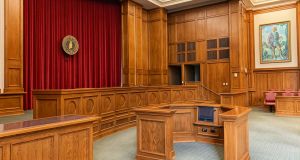Syrians voted in designated polling stations in government-held areas of Syria for the election of new parliament.
On Wednesday around seven in the morning, citizens began to fill the polling stations to vote for the new 250-member parliament. An estimate of 3,500 candidates were approved by the government to run while around 7,000 candidates dropped out. The election is expected to serve as a rubber stamp for President Bashar Assad in a vote which Western leaders and members of Syria's oppostion team have denounced as a sham and a provocation that sabotages the peace talks in Geneva. According to Y Net News, Damascus said that the election is only held in government-controlled parts of Syria and that it is constitutional and separate from the peace talks in Geneva that aimed to end war.
Washington Times said that the negotiations that will resolve the civil war in Syria that is already happening for five years now resumed later on Wednesday in the Swiss City. Government representatives were late due to elections, while the UN reps met with the opposition team.
Russia, which is the main ally of Assad, welcomed the vote as it is necessary to avoid "a power vacuum" in the country until an agreement for a new constitution and election are made in the on-going peace talks. Assad told that the election is to defy terrorists. This is the term Assad always uses in pertaining to Syria's opposition.
In an article released by Times of Israel, Britain said that Damascus' action to proceed with the election despite the war where hundreds of registered voters cannot take part shows leadership "divorced from reality."
"This war is not only about terrorism," Assad said in an interview with a state TV reporter. "It is true that terrorism managed to destroy much of the infrastructure and it managed to shed lots of blood, but it failed to realize the main goal, which is to strike at the main infrastructure in Syria, the social infrastructure and the national identity."
According to Yahoo, voters said that they fully support the elections. "My vote is like a bullet to our enemies. I am here to continue the ongoing resistance since five years. I am here to support the Syrian Arab Army," an 18-year old voter and high school student, Yazan Fahes, said. Another citizen, Marah Hammoud, a 21-year old student from the central city of Homs, said that it is very important at this point that Syrians choose their representatives well. "We want elected officials who care about the people, who can help end this was and control prices," Mara said. "We live on this hope."
Foreign minister Walid al-Moallem, after casting a vote, said that, "We in Syria always say that the Syrian people decide their destiny and today they are proving practically the accuracy of this saying."




